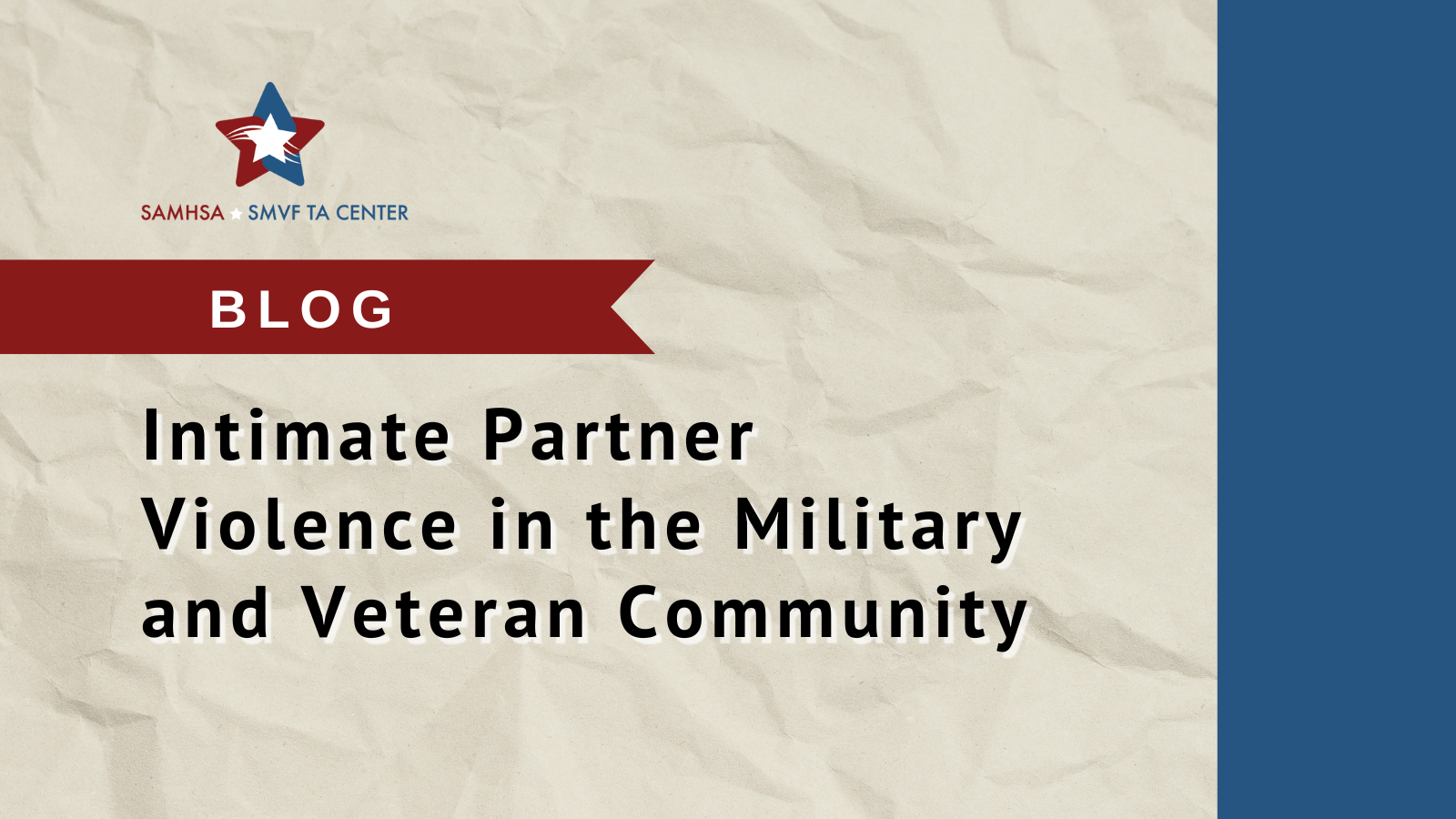Intimate partner violence (IPV) is a critical concern within the service members, Veterans, and their families (SMVF) community. Understanding the unique challenges this group faces, and the specialized resources that can help, can transform care and outcomes. The Substance Abuse and Mental Health Services Administration’s (SAMHSA) Service Members, Veterans, and their Families Technical Assistance Center hosted a webinar, “Intimate Partner Violence in the Military and Veteran Community,” that shared background, initiatives, statistics, and resources on this issue. Read on to gain the top takeaways from the session.
IPV in the Military Context
The webinar opened with a comprehensive overview of IPV’s prevalence and risks among Veterans. Veterans are twice as likely to experience IPV, which can lead to severe consequences, including homelessness, health issues, and increased risk of suicide. These statistics highlight the urgent need for practical support and intervention strategies.
Women Veterans and IPV
Women veterans often experience health issues that are compounded by their military service. These include concerns specific to reproductive healthcare, which can be amplified by experiences of violence, including IPV, during their service time.
Federal Initiatives and Support
In 2023, the White House released the first-ever U.S. National Plan to End Gender-Based Violence. This plan outlines strategies for action and emphasizes federal efforts to improve behavioral health outcomes for survivors. Federal coordination enhances the support structure, demonstrating a commitment to tackling IPV across various agencies.
Resources and Assistance Programs
The webinar highlighted several resources, including the Veterans Health Administration’s Intimate Partner Violence Assistance Program (IPVAP), which provides comprehensive support to Veterans and their families experiencing IPV. Resources such as the 988 Suicide and Crisis Lifeline and the Veterans Crisis Line are vital for immediate assistance.
Trauma-Informed Care
Presenters emphasized the importance of using principles of trauma-informed care when handling IPV cases. Ensuring safety, transparency, and choice for survivors during screening and intervention processes is crucial in fostering a supportive environment that encourages healing and recovery.
Educational and Preventive Measures
The presentations highlighted the importance of universal education about safe and healthy relationship skills. Creating protective environments and empowering bystanders can significantly contribute to preventing IPV and supporting those affected.
Opportunities for Collaboration
Collaboration between IPV professionals and military and Veteran support groups can enhance the effectiveness of interventions. Understanding the diverse needs of survivors, including cultural, linguistic, and behavioral health considerations, is key to tailored support.
Overcoming Challenges and Barriers
Barriers to accessing services, such as fear, shame, and concerns about confidentiality, particularly impact the military community due to potential repercussions on military careers. Addressing these barriers is essential for effective intervention and support.
Conclusion
Together, we can enhance the support system for those impacted by IPV and contribute to a safer, healthier community for our service members and Veterans. Watch the full webinar archive to gain a detailed understanding IPV’s implications within the military and Veteran community and to explore the rich array of resources and strategies discussed.
This blog post was developed with the assistance of generative artificial intelligence.


